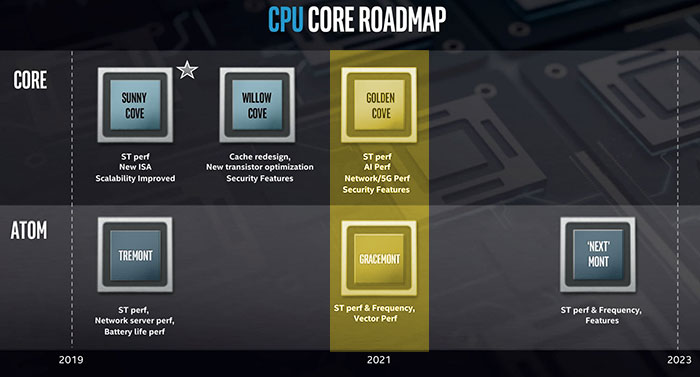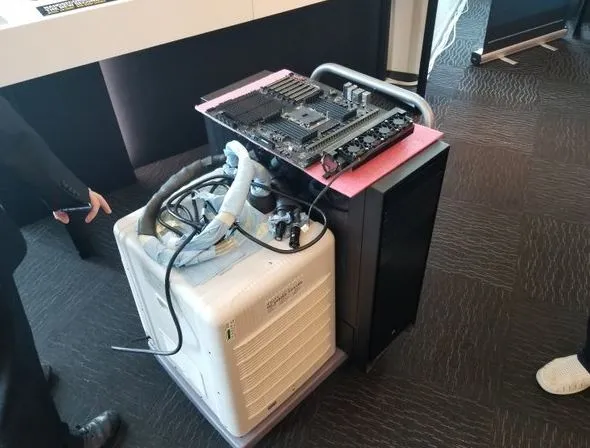It is probably fair to say that the launch of Intel's Alder Lake processors is a highly anticipated event. From official and non-official channels we have heard this is going to be a "breakthrough CPU architecture," bringing hybrid compute cores to the desktop (and mainstream/performance laptops), with lots of benefits touted in the realms of performance, efficiency, and I/O.
In recent hours there have been some juicy rumours / leaks about ADL-S, the part of the processor family destined to desktop PCs, so I think it is worth looking over this news here. The most recent spillage is of purported specs of what will probably be favoured SKUs for PC-DIY enthusiasts, the ADL-S 'K' suffixed unlocked multiplier CPU models from Intel.
|
|
Core i9-12900K |
Core i7-12700K |
Core i5-12600K |
|
Performance + Efficiency core config |
8P + 8E |
8P + 4E |
6P + 4E |
|
Performance core clocks |
1-2C 5.3GHz, 8C 5.0GHz |
1-2C 5.0GHz, 8C 4.7GHz |
1-2C 4.9GHz, 6C 4.5GHz |
|
Efficiency core clocks |
1-4C 3.9GHz, 8C 3.7GHz |
1-4C 3.8GHz, 4C 3.6GHz |
1-4C 3.6GHz, 4C 3.4GHz |
|
L3 cache |
30MB |
25MB |
20MB |
|
PL1, PL2 |
125W, 228W |
125W, 228W |
125W, 228W |
Above, you can see the specs of the upcoming ADL-S 'K' CPUs. The hyperthreading enabled performance cores are codenamed Golden Cove, and the smaller efficiency cores Gracemont. These figures are said to be based not on the earlier leaked engineering samples (ES) but on newly distributed qualification sample (QS) processors. Usually a QS chip will be the same spec as what ships to consumers.
The above news/ figures were compiled from Chinese forum Zhihu via momomo-us and La Frite David on Twitter.

A day earlier, news swirled as it became apparent someone had been testing ADL-S ES chips in Cinebench 20. HXL on Twitter spotted the results shared on a Chinese forum called NGA. According to the results, a Core i9-12900K second gen ES part scored 9300+ in the Cinebench R20 multi-threaded tests.This performance was extrapolated for QS-level chip speeds (as per the table compiled above), and doing so would result in a score of up to 11300 with the chip adequately cooled. Other results from this data suggest that shipping Core i7-12700K processors should reach CB 9500+, and the Core i5-12600K as high as CB 7400+. For reference, the AMD Ryzen 5950X scores 10100+ points in Cinebench 20 multithreaded tests.
Intel's 10nm SuperFin Alder Lake hybrid processors for laptops and desktops are expected to begin appearing in November this year.







